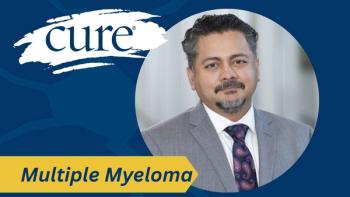
More Effective Treatment Options are Needed for Patients with Advanced Multiple Myeloma
Despite recent advances in the treatment of multiple myeloma, more must be done to find effective treatment options for patients with advanced disease, according to Dr. Luciano J. Costa.
Despite recent advances in the treatment of multiple myeloma, more must be done to find effective treatment options for patients with advanced disease, said Dr. Luciano J. Costa, an associate professor of medicine in the Blood and Marrow Transplantation and Cell Therapy Program at the University of Alabama's Birmingham School of Medicine.
In a recent interview with CURE®’s sister publication, OncLive®, Costa explained that because current options offer lower response rates of around 30%, more effective solutions are needed for patients who progress after proteasome inhibitors, immunomodulatory drugs and monoclonal antibodies.
Transcription
Even though we had had several advances in therapy for multiple myeloma in the last couple of decades, we still have some substantial challenges which are essentially the patients who progress, whose disease progresses beyond the proteasome inhibitors, immunomodulatory agents and their monoclonal antibodies. There are very few agents in that scenario.
Most of the drugs or most approaches being investigated produce a relatively low rate of response, around 30%. Which is in general, not very durable.
So there's a huge need for drugs or regimens or approaches that could be effective in that population that is triple class refractory and can be performed with a reasonable level of safety.




